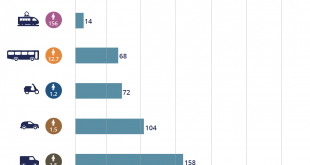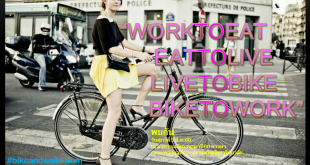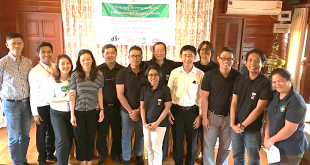At Office of the Permanent Secretary, Ministry of Industry (MoI) on January 9, 2014, there was a ceremony to sign a Memorandum of Understanding (MoU) between the MoI represented by its Permanent Secretary Dr. Witoon Simachokedee and Thailand Cycling Club (TCC) represented by its President Professor Emeritus Thongchai Panswad Ph.D. to implement a government cabinet’s resolution on November 19, 2013, that acknowledged a resolution of the 5th National Health Assembly 2012 on ‘Systems and Structures for Promotion of Walking and Cycling in Daily Life’. The ceremony was witnessed with MoI’s senior government officials, representatives of people with disability and National Health Commission, and mass media.
The MoU covers three areas of cooperation:
1. Academic Cooperation: MoI would set up a working to improve standards for cycles and their accessories and for equipment used by people with disability, and a working group to develop systems for supporting cycle-related industries for domestic market. TCC will have representatives in both working groups.
2. Public Relations: MoI and TCC shall cooperate to give advice and academic information to pedestrians and bicycle users, people with disability and elderly people.
3. Industrial promotion: The MoI has a plan to support entrepreneurs and industries related to manufacturing of equipment for pedestrians, bicycle users and people with disability with TCC to help coordinate with their organizations and networks, including related agencies.
The MoI Permanent Secretary expressed his belief that this MoU is the first step in the close relationship between MoI and TCC to put the cabinet and NHA’s resolution into practice and MoI would speed up its implementation.
TCC President, on the other hand, thanked the Ministry for taking this initiative, becoming the first government agency to move forward to implement the cabinet resolution in practice. This move would not only support small and medium enterprises related to manufacturing of equipment for pedestrians, bicycle users and people with disability, but also help reverse the ministry’s bad image, as industries are seen to destroy environment, to have a better image as a ‘Green Ministry’ as bicycles and equipment for people with disability are seen as ‘green products’.
 ชมรมจักรยานเพื่อสุขภาพแห่งประเทศไทย ชมรมจักรยานเพื่อสุขภาพแห่งประเทศไทย
ชมรมจักรยานเพื่อสุขภาพแห่งประเทศไทย ชมรมจักรยานเพื่อสุขภาพแห่งประเทศไทย



